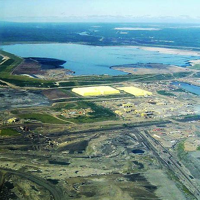The proposed Keystone XL pipeline, which would bring crude oil from the so-called oil sands in Canada's Alberta province through an almost 2,000-mile pipeline to the U.S. Gulf Coast, has in many ways become ground zero in the U.S. debate over fossil fuels, the environment and climate change. But perhaps most relevant in the current row, though practically absent from the debate, is the increasing awareness that energy security must be included as part of the calculus in determining energy sources. Indeed, terminology such as "friendly" supplier -- regularly applied to Canada in U.S. energy discussions -- underscores what is at stake in global geopolitical terms. But while the implications and role of China's increasing demand for energy are openly recognized in calculations over energy supplies in other parts of the hemisphere and across the globe, for many they remain only implicit when it comes to expanded delivery from Canada.
Highlighting this anomaly, the public discourse in the U.S. surrounding Keystone XL has largely been framed in familiar environmental and economic terms. The U.S. State Department's approval process for the pipeline has fueled the smoldering debate over the production of oil from Alberta's oil sands. Protesters were arrested by the hundreds during recent demonstrations against the project outside the White House, while just yesterday, more than a hundred demonstrators were arrested outside the Canadian Parliament in Ottawa. Just as passionately, supporters of the project have fanned out to extol its economic, job-creating virtues.
But with high gasoline prices, continued turmoil in North Africa and the Middle East and declining supplies from longtime oil providers Mexico and Venezuela, the energy-security card appears to be a strong one in this debate -- especially given China's investment in the oil sands and its eagerness to develop another pipeline under consideration in Canada, the Northern Gateway project. In assessing the Keystone XL debate, it is worth considering China's effort to tap Canadian energy reserves and direct them to the Chinese market. In many ways, the push for Northern Gateway signals that China's efforts in Alberta are practically indistinguishable from elsewhere in the world, with the imperative being to secure supplies and, when possible, bring barrels to China.

